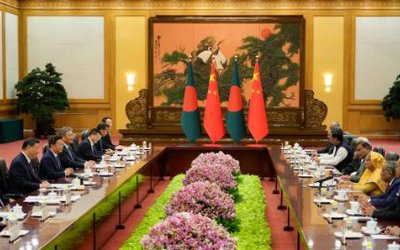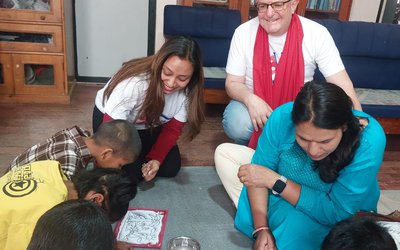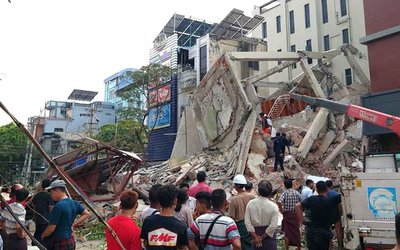
As Bhutan is set to graduate out of the Least Developed Country category by year-end, UN’s Under-Secretary-General Rabab Fatima said that it will bring both opportunities and problems.
After graduation, she said the sources of the country’s access to financing will diversify, including in the realm of private financing. It will also convey a strong positive signal to the international capital market on Bhutan’s steady progress on key macroeconomic indicators.
“Bhutan’s standing as a stable, developing economy will open more opportunities for foreign direct investment as the country will be viewed globally as a more attractive destination to invest,” she said.
She said that the ongoing policy reforms and forward-looking initiatives as envisioned in the 13th Plan will improve the cost of doing business and generate more private sector investment greatly.
Rabab Fatima, who is also the High Representative for the Least Developed Countries, Landlocked Developing Countries and Small Island Developing States, said that the fulfilment of the graduation thresholds does not mean that all of Bhutan’s development challenges are over.
“Several forms of LDC-specific support will cease after graduation. The world is already grappling with multiple, overlapping crises, which will also impact Bhutan after graduation,” she said. “Of course, the impact of graduation varies widely from country to country depending on their national circumstances.”
She said that it is difficult for many recently-graduated countries to adjust to their new situation in the absence of dedicated support mechanisms that are proportionate to their special needs.
“In the case of Bhutan also, detailed studies were conducted by the UN on ex-ante impact assessment and vulnerability profile,” she said.
According to Rabab, these studies capture the impact of graduation on Bhutan in three specific areas: trade-related measures; official development assistance and other support measures, such as budget allocations for LDC-specific funding mechanisms; caps on LDC contributions to the budget of international organisations; and travel support.
The Under-Secretary applauded Bhutan’s significant progress in realising its development goals.
She said that between 2000 and 2018, Bhutan maintained steady economic growth of 7 percent annually. This means that Bhutan met the target of a 7 percent GDP growth rate as envisioned in the Istanbul Programme of Action to ensure accelerated progress towards graduation.
“Bhutan’s economy has grown more than eight times in the last two decades, from under $300 million in 2000, to $2.54 billion in 2021,” she said
During this period, Bhutan also made rapid progress towards graduation across all key benchmarks.
“With a spectacular rise from 19 percent of the graduation threshold in 2000, to 183 percent in 2018, and 239 percent in 2020, Bhutan has demonstrated the fastest progress among all non-oil exporting LDCs,” Rabab Fatima said.
She said that Bhutan’s Gross National Income per capita has grown fast and is now above $3000, more than double the graduation threshold.
Bhutan’s Human Asset Index stands at a score of 79.5 – showing consistent improvement since 2018, which Rabab said is a rapid one.
“Most significantly, the Economic Vulnerability Index is also much below the graduation threshold. And this makes Bhutan one of a select few countries to graduate from the LDC category by fulfilling all three criteria, alongside Bangladesh and Lao PDR,” she said.
There are currently 15 LDCs at different stages of the graduation process.
Within the next six to seven years, most countries in the LDC category will be from Africa. As the remaining LDCs endeavour to meet the graduation benchmarks, they need role models for what a successful graduation pathway might look like, Rabab Fatima said.
“I believe that the development trajectory followed by Bhutan presents important lessons for all LDCs, especially small landlocked LDCs in Africa,” she said.
Rabab Fatima reassured that the UN System will continue to accompany Bhutan and its people as the country enters a new stage of its development trajectory.
“As the High Representative, I speak for the 92 most vulnerable countries of the world, and I will continue my advocacy and outreach efforts both within the UN and beyond to rally global support and solidarity for Bhutan and other graduated countries,” she said.
Source: Kuensel
- Upper Trishuli-1 Hydropower Project Handed Over Ambulances
- Mar 31, 2025
- Embassy of Israel Celebrates Good Deeds Day with Children and Elderly at Tulasi Foundation
- Mar 31, 2025
- Tribhuvan International Airport to open for 18 hours daily from Tuesday ( April 1)
- Mar 31, 2025
- Eid-ul-Fitr live updates: PM Modi extends Eid greetings, wishes joy and success
- Mar 31, 2025
- Chaitra Navratri 2025: Importance Significant
- Mar 31, 2025














